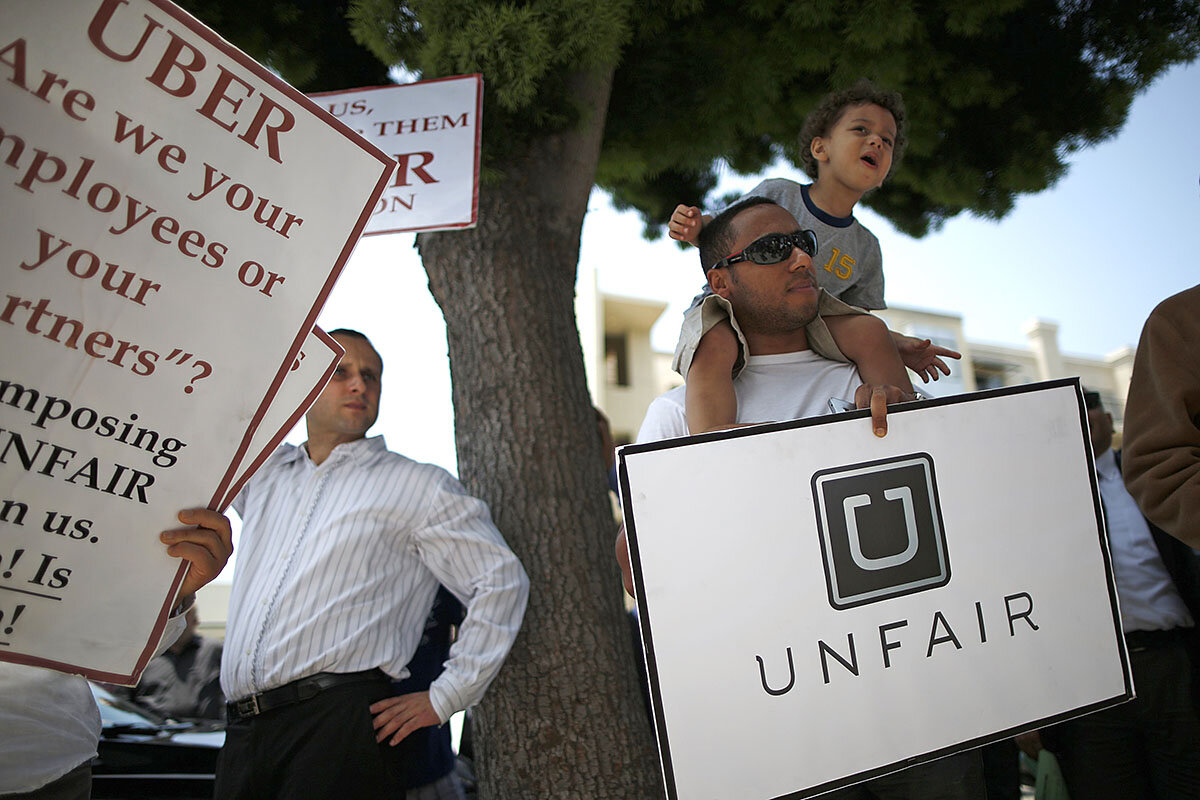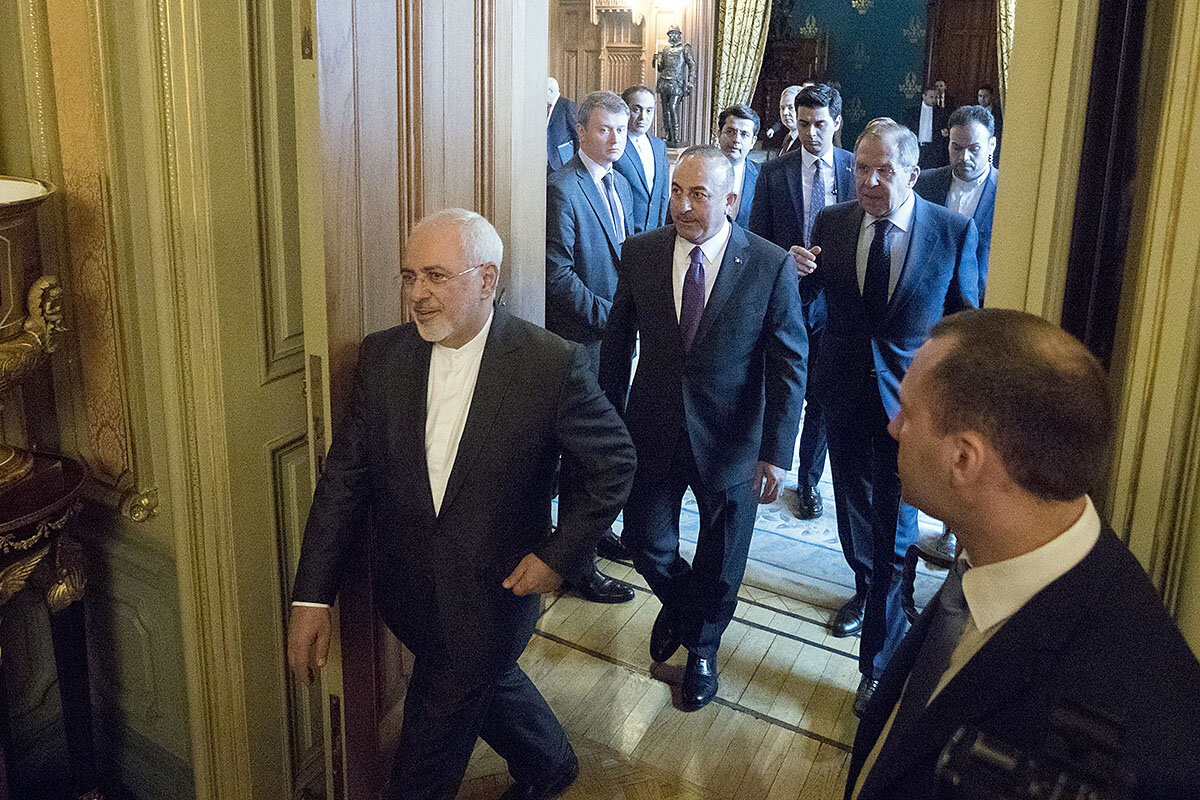Most headlines about a new California ruling that could lead to the reclassification of many independent contractors as employees focus on the "seismic" changes it may bring. Lawyers on both sides say this battle has actually been going on for decades. Still, this decision should catch the attention of anyone concerned with the rules of the modern workforce.
Monitor Daily Podcast
- Follow us:
- Apple Podcasts
- Spotify
- RSS Feed
- Download
 Clayton Collins
Clayton Collins
There’s lots of coverage today about what one report called the “chaotic debut” of the US president’s latest legal team.
Other important stories have practically no public profile.
Every day the Monitor’s photo editor, Alfredo Sosa, delivers options for the Viewfinder feature at the bottom of this package. They’re “of the day.” Some are joyful, some somber. We choose one to round out the Daily in some way.
One image that he offered yesterday didn’t make the issue but elbowed back into thought late last night and then again this morning. It showed the arrival at Delaware’s Dover Air Force Base of a “transfer case” containing the remains of US Army Spc. Gabriel D. Conde.
Conde, who was 22 and from Loveland, Colo., was killed by small-arms fire April 30 in Afghanistan – in a war that began when he was 5 years old and from which he was scheduled to be redeployed to Alaska this month. April 30 was also the day a blast in Kabul killed at least 25 people, including nine journalists – other people doing their jobs.
Wherever we stand on war, on presidencies, on any number of social divides, we can draw inspiration from those devoted to deliberate action that’s intended to help – including action that carries great personal risk.
Democracy “fails its way to success,” as a professor writes in Foreign Affairs.
Earlier this week, historian Jon Meacham spoke to NPR. “I think this is as important a moment as the hours after the Civil War,” he said, “when we were trying to decide what kind of country we were going to truly be. There's a lot to work on. But ultimately, the story has turned out well.”
Now to our five stories for your Friday, looking into new thinking around workforce definitions, citizenship, and a power relationship in a tense region.










